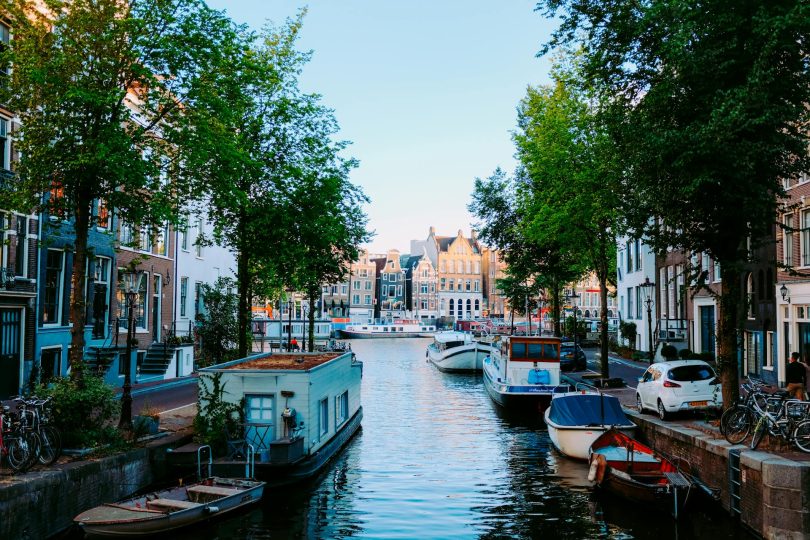Boat Life
I miss boats. I miss playing in boats. I miss trundling the muddy footpaths to collect bags of wood from the boatyards. I miss waking up to ducks tapping on the side on my boat.

Why is it I wasn’t ill for the year and a bit when I lived on my tiny dilapidated canal boat?
Not even a cold!
This little rusty thing with a very dubious wood burner stove as it’s only heating, kept me healthy the entire time. I went through such stormy rains, ice embodying snow, blustering named hurricanes. Then the summer hit with heat so overbearing for this oversized greenhouse you’d want to faint. I went through having no coal to light the fire and sleeping in 4 layers of clothes, hat and gloves.
Why didn’t I get sick?
I miss playing in boats!
It’s a heavily researched topic that nature can indeed improve health.
But why is it still so little understood?
Why is it not more established in health care?
Nature is Healthy, Who Knew?!
A study showed that if hospital patients after procedures looked out onto an open canopy of trees or such, through their window panes, they were more likely to make quicker recoveries from chronic conditions and serious illnesses. Rather than if they faced a brick wall through their window. A few hospitals have gone through renovations because of this but not all.
What a crazy statement?
What a mad idea?

A tree outside of your window may make you well.
But is it so mad?
In the book Losing Eden the writer, Lucy Jones, explains clearly how her healthy state of mind dramatically decreased when building works took up president at her main living room window[1]. Jones says the tree she saw everyday helped her with a positive attitude, she seemed fitter and healthier just by its presence.
Jones’ writing makes it clear that we should be getting in touch with the Earth beneath us. She explains in detail that for our psychological wellbeing we need to discover new ways of dealing with our dysfunctional relationship with the Earth. And of course we do have a very odd idea of mud as mess and dirt as a hinderance, especially when in cities. At local parks we hear the repeated cries of parents; ‘don’t jump in that puddle,’ ‘yuk that’s a spider,’ ’look you’re all dirty’ – with a disapproving snarl. None of which are very helpful if we are to follow Jones’ philosophy.[2] Instead we should be hearing, ‘yes look at you covered from head to toe in mud, awesome!’ Maybe if the human biology behind dirt being good for us was more in the public domain this may catch on.

One of the biggest cliches in the literature of boating is what the Water Rat says to the Mole:
“Believe me, my young friend, there is nothing–absolutely nothing–half so much worth doing as simply messing about in boats.”
Wind in the Willows by Kenneth Grahams
Illness Creeping In
I must explain a little about my experience. I left the boating community because I was pregnant with my little girl. Many people raise children on canal boats but because my boat firstly, didn’t have room for a cot or any amenities (it didn’t have room to swing a cat-let alone a baby. Not that we should be swinging babies, but you get what I mean), and secondly, didn’t have heating really, I felt it would be good to move inside. My blokes flat was lovely (after I did it up) and happened to be nestled in the centre of Covent Garden. Bonus, I thought, I can live in the coolest place on Earth. The realisation hit however when I kept getting ill. I thought it was the pregnancy and some of it probably was. But the stress, square eyes and fatigue weren’t, I know this because I still feel them and my daughter is now 2 years old.

What I was missing and what I still miss is the outdoors being ever present and readily at hand. The smoky chimneys, the smell of dirt and gravel, the sweat of someone with a broken shower (ha), the smell of oil and grease from a broken engine, the wet grass surrounding me, but mostly the trees. All of these are intricacies I didn’t even realise could manifest in illness until I experienced it first hand.
A test undertaken in 2008 called The Trier Social Stress Test saw people living in cities had exaggerated numbers of white blood cells and pro-inflammatory cytokines in the blood opposed to those who dwelled in the countryside.[3] This is not to say, live in the country and you’ll never be sick again. That would be completely misunderstood. But the evidence does seem to suggest those in rural environments with a greater range of microbial diversity, would have reduced physical and mental health problems later down the line. I think it worth bearing in mind that it takes the right kind of experience in nature to have wellness benefits. I mean to say, someone who lives in the country but rarely steps outside of their house/car, aren’t going to be comparable to someone who frolics in the woods all day long. You’d have to be ingesting a bit of dirt (possibly a slug or two as well, who knows!) to get the juice of health.
For now, I still live in the city and dream of a house in the country. What I make sure of though is that I get out into woods and parks as much as possible. Next time I go I may lick a tree see if that helps…

(My daughter and I now have a different kind of boating experience than my past as the owner of my own floating vessel. I actually would say she’s the captain of the ship and I am just the skipper these days).
Sources
[1] Jones, Lucy, Losing Eden, (Penguin Random House UK, 2020), p.19-21
[2] Jones, Lucy, Losing Eden, Ch. 3 Mud-Luscious and Puddle Wonderful (Penguin Random House UK, 2020)
[3] Ibid. p.31
Main – Photo by Adrien Olichon




